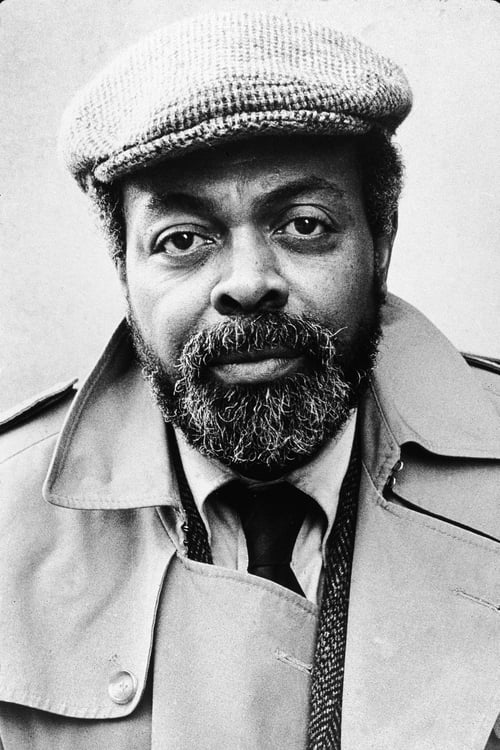Amiri Baraka
Nacimiento : 1934-10-07, Newark, New Jersey, USA
Muerte : 2014-01-09
Historia
Amiri Baraka (born Everett LeRoi Jones October 7, 1934), formerly known as LeRoi Jones and Imamu Amear Baraka, is an African-American writer of poetry, drama, fiction, essays, and music criticism. He is the author of numerous books of poetry and has taught at a number of universities, including the State University of New York at Buffalo and the State University of New York at Stony Brook. He received the PEN Open Book Awardformerly known as the Beyond Margins Award in 2008 for Tales of the Out and the Gone.

Himself
The poet and painter, Lawrence Ferlinghetti, is among the world's living monuments to arts and letters. For well over a half century, Ferlinghetti helped shape the currents of poetry and literature with his forceful engagement with society and an ideological position that often found him at odds with the political currents of his day. Ferlinghetti's quiet, behind the scenes demeanor and disarming mien may have assuaged, or even fooled, certain opponents, while in reality he was a literary mercenary, a rebel at the forefront of our own cultural revolution.
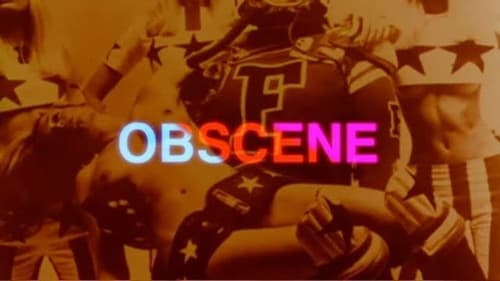
Himself
A look at the life and work of American publisher Barney Rosset, who struggled to bring controversial works like "Tropic of Cancer" and "Naked Lunch" to publication.

Himself
The film explores the memory and the legacy of the 60s counterculture through interviews with NY political activists, artists and people on the street. The mosaic of voices heard in the documentary creates a public site for memories, reflections and hopes for the future to be shared beyond the confines of one's community. An inter-generational exploration on what is left of the 60s in people's memory and consciousness.

Self
Because jazz is the miraculous product of the horror of slavery, Youssou N'Dour returned to the slave route and the music they created, in search of new inspiration. Accompanied by the blind Swiss pianist Moncef Genoud and the Director of the Gorée House of Slaves Museum, Joseph N'Diaye, the Senegalese singer wrote new songs during this initiatory voyage which took him to the USA then to Europe. At Gorée, an island just off the Senegalese coast and symbol of the slave trade, his memorable concert marked the end of this quest and the start of a new challenge: making today's generation aware of the tragedy of slavery, the importance of not forgetting and the need for reconciliation.
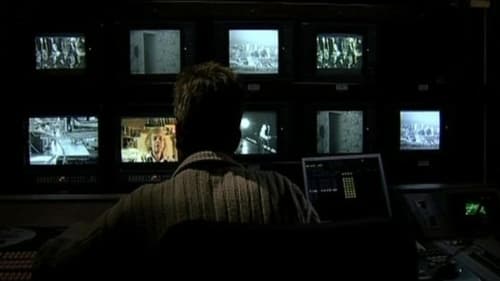
Self
Out of the underground archives and the emblematic figures of these avant-garde movements, featuring Steve Ben Israel of the Living Theater, the puppet creator Peter Schumann, the photographer Alain Dister, the American black dramatist Amiri Baraka and a hypnotic ride, punctuated by the electrified performances of Jimi Hendrix.

Documentary about Charles Olson, exploring his life and the significance of Gloucester, Massachusetts.

Himself
An exploration into the life and art of the renowned author of "Last Exit To Brooklyn" and "Requiem For A Dream." Hubert Selby Jr., a self-described "scream looking for a mouth," against all odds, reached international acclaim with his controversial novels. His is a classic story of the great American novelist, overcoming tuberculosis, drug addiction and financial ruin, Selby eventually triumphed in his life and penned seven of the most remarkable and distinctly American books ever written.

Himself
A gritty, provocative true-life story of three friends from the 'hood, Rameck Hunt, Sampson Davis, and George Jenkins, who made a pact in high school to find a way to go to college and then medical school. They not only accomplished this, but they're now spreading the word to inspire other inner-city kids to stay off of drugs, out of gangs and to take the educational route to a better life. THE PACT captures the pathos of the men's individual journeys, the integrity of their voices and the power of their rare friendship. Their stories affirm the values that ultimately sustained and drove them: courage, tenacity, and faith. And they give tribute to the life of the mind and its power to turn dreams into reality.

Himself
Cecil Taylor was the grand master of free jazz piano. "All the Notes" captures in breezy fashion the unconventional stance of this media-shy modern musical genius, regarded as one of the true giants of post-war music. Seated at his beloved and battered piano in his Brooklyn brownstone the maestro holds court with frequent stentorian pronouncements on life, art and music.
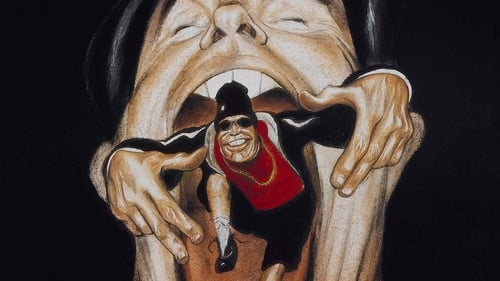
Rastaman
El senador demócrata Jay Bulworth, harto de la falsedad del mundo político, se vuelve loco y arregla su propio asesinato y dedica el cierre de su última campaña electoral a decir sólo la verdad. Durante el transcurso de ésta se arrepiente después de conocer a una atractiva activista política (Halle Berry) y de lograr un éxito inesperado en su campaña. Al final el éxito es tan abrumador que decide presentarse a la presidencia de EEUU, momento en el cuál los lobbys económicos deciden y ejecutan su muerte por ser un peligro a sus intereses.

Self
James Baldwin was at once a major 20th century American author, a Civil Rights activist and, for two crucial decades, a prophetic voice calling Americans, black and white, to confront their shared racial tragedy.

Himself
One in a series of 13 documentaries on renowned American poets produced by the New York Center for Visual History. Described by director St. Clair Bourne as “a narrative performance documentary,” this category-defiant film on the life of poet and writer Hughes and the times in which he lived and worked moves from America to Senegal to Paris, from the 1920s Harlem Renaissance to the Black Pride awakening of the 1960s.

Himself
This video portrait, filmed in the days leading up to Amiri Baraka’s appeal of his 90-day sentence for resisting arrest following an argument in his car outside the 8th Street Playhouse movie theater, documents Baraka at his radio show, at home with his wife and children, and performing at readings. It is a delicate vision of a revolutionary who has grown quieter—though never at rest, and as sage as ever.

James Baldwin retraces his time in the South during the Civil Rights Movement, reflecting with his trademark brilliance and insight on the passage of more than two decades. From Selma and Birmingham and Atlanta; to the battleground beaches of St. Augustine, Florida, with Chinua Achebe; and back north for a visit to Newark with Amiri Baraka, Baldwin lays bare the fiction of progress in post–Civil Rights America, wondering “what happened to the children” and those “who did not die, but whose lives were smashed on Freedom Road.”
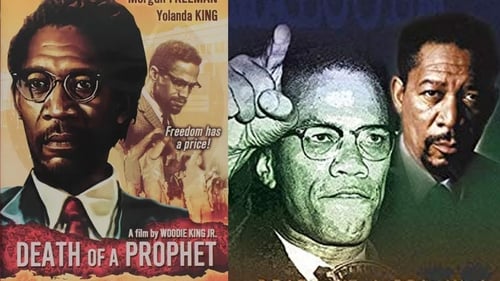
After breaking ties with the Nation of Islam, Malcolm X became a man marked for death...and it was just a matter of time before his enemies closed in. Despite death threats and intimidation, Malcolm marched on - continuing to spread the word of equality and brotherhood right up until the moment of his brutal and untimely assassination. Highlighted by newsreel footage and interviews, this is the story of the last twenty-four hours of Malcolm X. Featuring the music of jazz percussionist Max Roach.

Himself
After World War II a group of young writers, outsiders and friends who were disillusioned by the pursuit of the American dream met in New York City. Associated through mutual friendships, these cultural dissidents looked for new ways and means to express themselves. Soon their writings found an audience and the American media took notice, dubbing them the Beat Generation. Members of this group included writers Jack Kerouac, William Burroughs, Allen Ginsberg. a trinity that would ultimately influence the works of others during that era, including the "hippie" movement of the '60s. In this 55-minute video narrated by Allen Ginsberg, members of the Beat Generation (including the aforementioned Burroughs, Anne Waldman, Peter Orlovsky, Amiri Baraka, Diane Di Prima, and Timothy Leary) are reunited at Naropa University in Boulder, CO during the late 1970's to share their works and influence a new generation of young American bohemians.

Self
This documentary explores the growth and development of black theatre from its earliest roots, also examining its close ties with the civil rights movement. Included are interviews with veterans of the theatrical world such as James Earl Jones and Ed Bullins.

Writer
Ben Caldwell’s Medea, a collage piece made on an animation stand and edited entirely in the camera, combines live action and rapidly edited still images of Africans and African Americans which function like flashes of history that the unborn child will inherit. Caldwell invokes Amiri Baraka’s poem “Part of the Doctrine” in this experimental meditation on art history, Black imagery, identity and heritage.
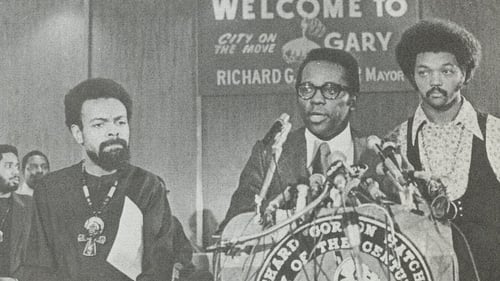
Self
A report on the National Black Political Convention held in Gary, Indiana, in 1972, a historic event that gathered Black voices from across the political spectrum, among them Jesse Jackson, Dick Gregory, Coretta Scott King, Richard Hatcher, Amiri Baraka, Charles Diggs, and H. Carl McCall.

Self
Lighter and livelier than the films Jean-Luc Godard had made in France, his U.S. collaboration with Direct Cinema documentarian D. A. Pennebaker was meant to be One A.M., as in “one American movie”; but Godard quit the project and the U.S., where to his dismay he discovered that revolution wasn’t imminent, and Pennebaker edited Godard’s material, to which he and Richard Leacock even added a bit more, releasing the result as One P.M., as in “one parallel movie.” It’s a stunning mixture of cinéma-vérité, political theater, and interviews of key sixties figures.

Screenplay
A black radical's ex-wife and children establish a new family unit with a Caucasian man, but he eventually returns to violently besiege them inside their home.

Theatre Play
A black radical's ex-wife and children establish a new family unit with a Caucasian man, but he eventually returns to violently besiege them inside their home.

A short documentary subject made for National Educational Television's Black Journal television program documenting a political rally in Newark, the 1970 mayoral campaign of Ken Gibson, and an African American voter registration drive with special musical performance by Stevie Wonder.
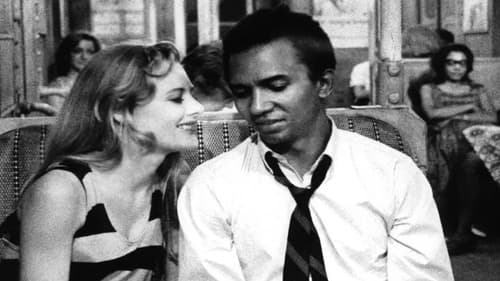
Writer
A young conservative black man, minding his own business, rides a nearly empty subway car. The only other passenger, a blonde vixen looking for trouble, sizes him up. Sexual tension, racial bigotry and righteous fury collide in a razor's edge confrontation between this unlikely pair.
